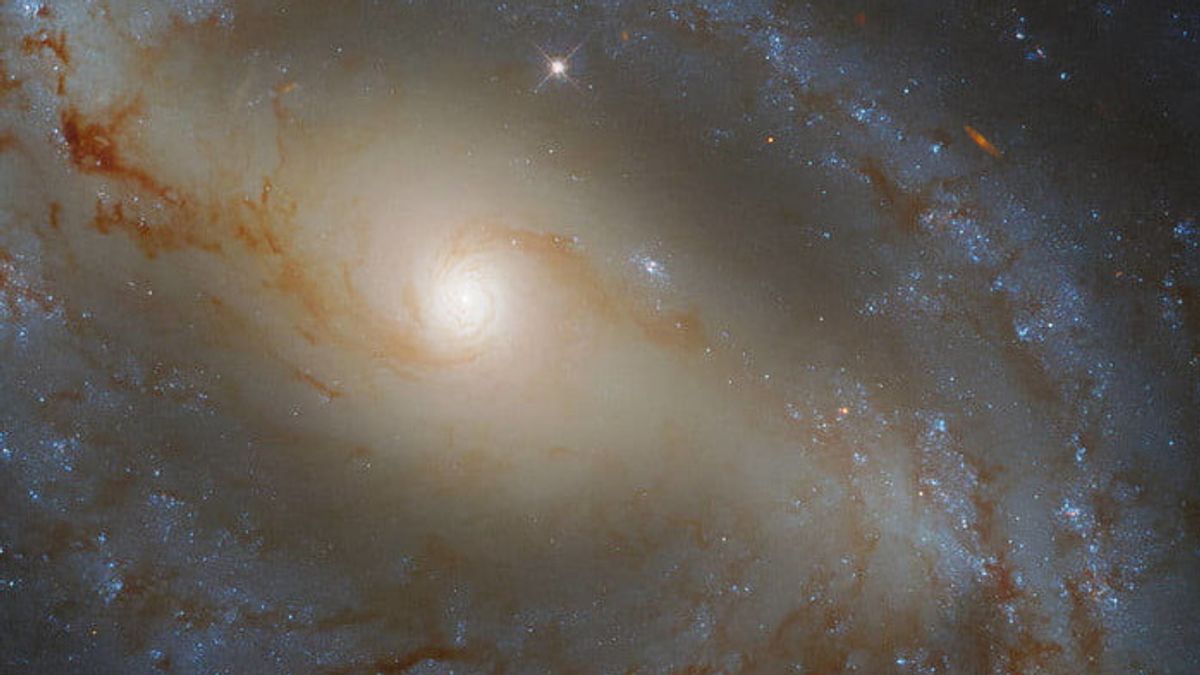JAKARTA - The Hubble Space Telescope has again shown off its teeth by successfully capturing an image of a galaxy that has spiral arms like a snake meandering.
The galaxy, known as NGC 5921, is 80 million light-years away, right in the constellation Serpens, or The Snake in the northern hemisphere.
Serpens is the only one of the 88 modern constellations with two unconnected regions, Serpens Caput (Snake's Head) and Serpens Cauda (Snake's Tail). Ophiuchus, the Serpent Bearer, separates these two realms.
Furthermore, Galaxy NGC 5921 is a type of barred spiral galaxy, like the Milky Way. The bar refers to the bright strip of light at the center of the galaxy, which is the region of dust and gas where many stars are born, which is why it shines so brightly.
About half of known galaxies have rods, and researchers think they evolve as galaxies age and dust and gas are pulled toward their centers by gravity.
The image was taken as part of a Hubble study of how the supermassive black hole at the heart of the galaxy relates to the stars within it.
Hubble used the Wide Field Camera 3 instrument to take the images, combined with data from the ground-based Gemini Observatory.
"Both telescopes help astronomers better understand the relationship between galaxies such as NGC 5921 and the supermassive black holes they contain," said the Hubble scientists.
"Hubble's contribution determines the mass of stars in the galaxy. Hubble also made measurements that helped calibrate observations from Gemini. Together, Hubble and Gemini provide astronomers with a census of the closest supermassive black holes in various galaxies."
Hubble and Gemini have worked together before in the past, such as when observations from the two telescopes were combined with data from NASA's Juno spacecraft to learn more about Jupiter's complex atmosphere.
The English, Chinese, Japanese, Arabic, and French versions are automatically generated by the AI. So there may still be inaccuracies in translating, please always see Indonesian as our main language. (system supported by DigitalSiber.id)












